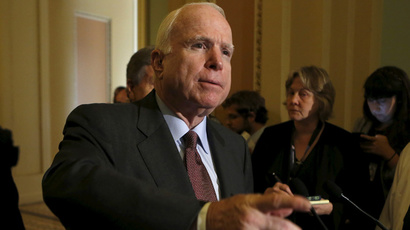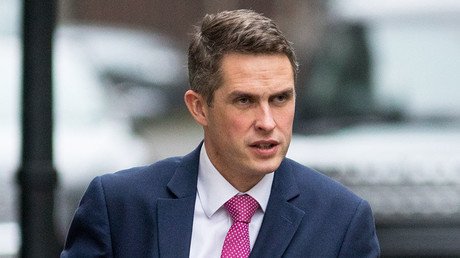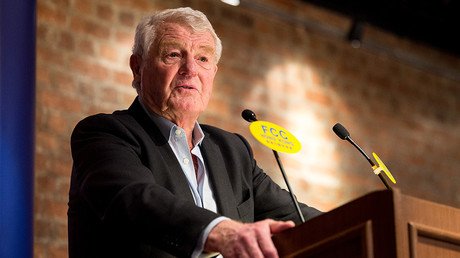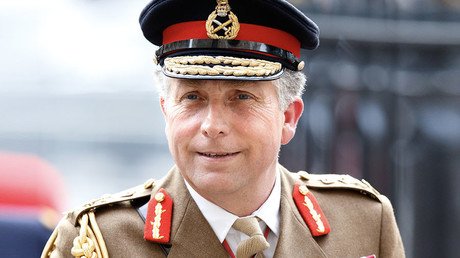The Russians are coming! Send money quickly!
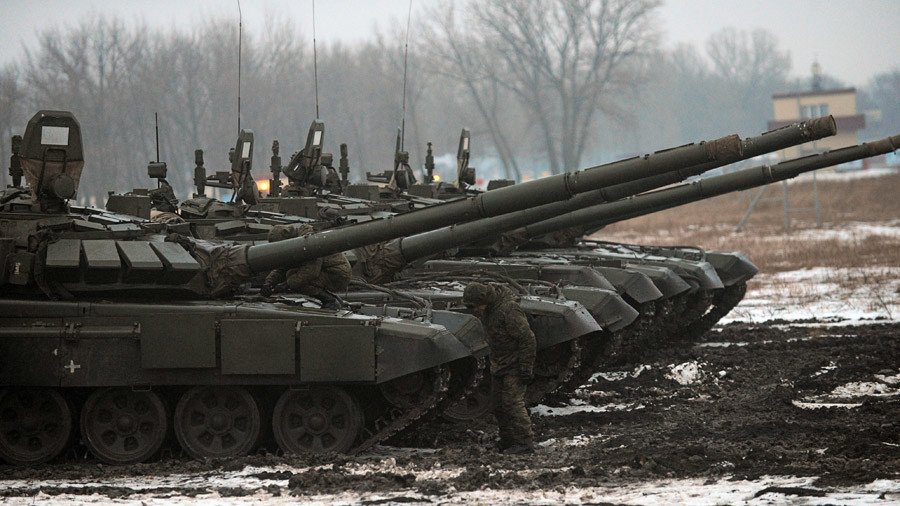
What’s behind the latest round of Russia-related scaremongering in the West, relentlessly stirred up by politicians and the mainstream media?
We’ve all had our fill (and then some) of Russophobic fables warning about the grave danger the big, snowy and mysterious nation poses to each and every one of us; about how the civilized and free world (whatever that means) is threatened by undemocratic hordes from the east. Western media is quick to remind us that sinister Russian forces lurk behind every corner, ready to hack elections and install stooges, invade the Baltics, undermine democracy and even cut off our internet.
Of course, proof of the above isn’t necessary: it’s the thought that counts! Whatever dastardly deed our imaginations might dream up, you can bet your bottom dollar that President Putin is already hard at work making your nightmares a reality. Although it would be mildly amusing if these stories formed the basis of a Hollywood B movie or a mediocre spy novel, the joke rapidly wears off when it transpires that our leaders, alongside an acquiescent mainstream media, are suffering from a serious case of Russophrenia.
The latest episode in this horror fiction opened with comments made by the head of the British Army. Speaking at the Royal United Services Institute last week, General Sir Nicholas Carter focused upon how Russia supposedly poses more of a threat to Britain than any other nation and presents “the most complex and capable security challenge we have faced since the Cold War.” The general warned that “Russia could initiate hostilities sooner than we expect, and a lot earlier than we would in similar circumstances,” advising that the UK maintain a forward base in Germany in the event that the nation’s forces need to rapidly deploy to the area.
Former UK Defence Secretary Sir Michael Fallon, who resigned in the wake of sexual harassment allegations, has also been clamoring for an expansion of the war chest. In his first speech since resigning from the cabinet, Fallon called for the Ministry of Defence to receive an extra £1 billion (US$1.4 billion) in government funding this year, in addition to increasing the annual defense budget to 2.5 percent of the UK’s GDP (an extra £7.7 billion a year).
One could indeed sympathize with these gentlemen’s predicament if Russian bases were located in Norway and France and Russian troops were performing joint military exercises alongside their Irish counterparts just south of the UK border, or if Russian government officials were supporting an aggressively nationalist movement in Scotland whilst pro-Russian NGOs organized anti-government rallies and funded unpopular politicians within the UK. As Russia has been at the receiving end of such treatment from the West, it’s easy to see which of the two sides is the more hostile.
Britain’s next Strategic Defence and Security Review (SDSR), where the nation’s military capabilities are reviewed and decisions are taken regarding defense spending for the next five years, is due to take place in 2020. Fear is a good motivator, especially when money is up for grabs. Now seems a good time to start thinking up reasons why the military ought to receive preferential treatment at a time of ubiquitous austerity.
The UK’s current defence secretary, Gavin Williamson, made his contribution to the cause a few days ago by claiming that Russia is ready to take actions “that any other nation would see as completely unacceptable.” Considering that NATO countries have in recent years alone destroyed several nations, leading to the death and displacement of millions, contributed to the rise of jihadist terrorism in Libya, Iraq and Syria, and set in motion a chain of events which has seen far-right and Nazi-inspired paramilitary groups march through a European capital, one has to wonder what the defence secretary considers unacceptable? Williamson assures us that Russia seeks to cause serious harm to the UK and "damage its economy, rip its infrastructure apart, actually cause thousands and thousands and thousands of deaths, but actually have an element of creating total chaos within the country."
I do wonder whether Williamson is actually referring to Theresa May’s Conservatives, who seem to be competently achieving the above without any external assistance. Or perhaps Williamson was just trying to draw attention away from his personal life.
I would believe Russia is up to no good if President Putin suddenly gave a large donation to the Conservative Party, perhaps in exchange for citizenship and a seat in the House of Lords. I also now understand why health professionals failed to get the Cameron and May governments to understand that the National Health Service needs more money, not less: we forgot to categorically state that Russia poses a threat to the health service. Or maybe UK Health Secretary Jeremy Hunt is actually one of Putin’s agents undertaking a covert mission to dismantle the NHS and bring chaos, misery and death to thousands.
The statements, views and opinions expressed in this column are solely those of the author and do not necessarily represent those of RT.

